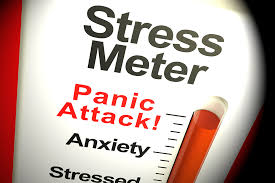The Impact of Stress and Anxiety on Mental Health
Stress and anxiety are common experiences in today’s fast-paced world, affecting millions of people worldwide. While some level of stress is normal and can even be beneficial in certain situations, chronic stress and anxiety can have a detrimental impact on mental health.
Understanding Stress
Stress is the body’s natural response to perceived threats or challenges. When faced with a stressful situation, the body releases hormones such as adrenaline and cortisol, preparing us for a “fight or flight” response. While this response is essential for survival, prolonged exposure to stress can lead to various health problems.
The Effects of Chronic Stress
Chronic stress can manifest in physical symptoms such as headaches, muscle tension, fatigue, and digestive issues. It can also take a toll on mental health, leading to anxiety disorders, depression, insomnia, and other psychological issues. Long-term exposure to stress has been linked to an increased risk of cardiovascular disease, obesity, diabetes, and other serious health conditions.
Anxiety: The Persistent Feeling of Unease
Anxiety is characterized by persistent feelings of worry, fear, or unease that can interfere with daily life. While it’s normal to feel anxious before a job interview or a big presentation, excessive worrying that persists over time may indicate an anxiety disorder. Generalized anxiety disorder (GAD), panic disorder, social anxiety disorder, and phobias are some common types of anxiety disorders.
Coping Strategies for Managing Stress and Anxiety
It’s essential to develop healthy coping strategies to manage stress and anxiety effectively. Regular exercise, mindfulness meditation, deep breathing exercises, adequate sleep, maintaining a healthy diet, seeking social support, and engaging in activities you enjoy can all help reduce stress levels.
Seeking Professional Help
If you’re struggling with chronic stress or anxiety that significantly impacts your daily life and well-being, it’s important to seek help from a mental health professional. Therapy (such as cognitive-behavioral therapy), medication prescribed by a psychiatrist if necessary), support groups, and other interventions can be effective in managing stress and anxiety disorders.
Remember that it’s okay not to be okay sometimes. Taking care of your mental health is just as important as taking care of your physical health. By addressing stress and anxiety proactively and seeking appropriate support when needed,
you can improve your overall well-being and quality of life.
7 Effective Tips to Manage Stress and Anxiety
- Practice deep breathing exercises
- Engage in regular physical activity
- Maintain a healthy diet and stay hydrated
- Get enough quality sleep each night
- Limit caffeine and alcohol intake
- Take short breaks to relax during the day
- Consider talking to a therapist or counselor for support
Practice deep breathing exercises
Practicing deep breathing exercises is a simple yet powerful tip for managing stress and anxiety. Deep breathing can help calm the mind and body by activating the body’s relaxation response, reducing the production of stress hormones, and promoting a sense of calmness. By focusing on slow, deep breaths, you can increase oxygen flow to your brain and body, which can help alleviate feelings of tension and promote a state of relaxation. Incorporating deep breathing exercises into your daily routine can be a valuable tool in coping with stress and anxiety, allowing you to feel more centered and grounded in challenging moments.
Engage in regular physical activity
Engaging in regular physical activity is a highly effective tip for managing stress and anxiety. Exercise has been shown to release endorphins, the body’s natural mood lifters, which can help reduce feelings of stress and improve overall mental well-being. Whether it’s going for a brisk walk, practicing yoga, or hitting the gym, physical activity not only benefits your physical health but also provides a much-needed outlet to release tension and clear your mind. Making exercise a consistent part of your routine can significantly contribute to reducing stress levels and promoting a sense of calm and balance in your daily life.
Maintain a healthy diet and stay hydrated
Maintaining a healthy diet and staying hydrated are essential tips for managing stress and anxiety. Eating a balanced diet rich in fruits, vegetables, whole grains, lean proteins, and healthy fats can provide the necessary nutrients to support your mental well-being. Hydrating your body by drinking an adequate amount of water throughout the day helps regulate mood, improve cognitive function, and reduce feelings of stress and anxiety. By nourishing your body with proper nutrition and hydration, you can better equip yourself to cope with life’s challenges and promote overall mental wellness.
Get enough quality sleep each night
Getting enough quality sleep each night is essential for managing stress and anxiety effectively. Sleep plays a crucial role in restoring both our physical and mental well-being. When we are well-rested, our bodies can better regulate stress hormones, improve cognitive function, and enhance emotional resilience. Lack of sleep, on the other hand, can exacerbate feelings of anxiety and make it harder to cope with daily stressors. Prioritizing a consistent sleep schedule and creating a calming bedtime routine can significantly contribute to reducing stress and promoting overall mental health.
Limit caffeine and alcohol intake
Limiting caffeine and alcohol intake can play a significant role in managing stress and anxiety levels. While caffeine can provide a temporary energy boost, excessive consumption can exacerbate feelings of restlessness and nervousness, leading to increased anxiety. Similarly, alcohol may seem like a relaxant, but it can disrupt sleep patterns and contribute to feelings of anxiety and depression. By moderating the consumption of these substances, individuals can support their mental well-being and promote a sense of calmness and stability in their daily lives.
Take short breaks to relax during the day
Taking short breaks to relax throughout the day can be a simple yet effective way to manage stress and anxiety. By stepping away from work or daily responsibilities for a few moments, you give yourself the opportunity to recharge and reset. Whether it’s taking a brief walk, practicing deep breathing exercises, or simply closing your eyes and focusing on your breath, these short breaks can help alleviate tension and promote a sense of calmness. Incorporating these moments of relaxation into your daily routine can enhance your overall well-being and improve your ability to cope with stressors effectively.
Consider talking to a therapist or counselor for support
Consider talking to a therapist or counselor for support when dealing with stress and anxiety. Seeking professional help can provide you with valuable tools and strategies to manage your emotions effectively. A therapist or counselor can offer a safe space to explore your feelings, identify triggers, and develop coping mechanisms tailored to your specific needs. Remember, reaching out for support is a sign of strength, and it can make a significant difference in improving your mental well-being.



